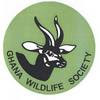A great start to the training with a few Estrilda finches caught first thing. These are small birds, and a tricky start for the new recruits, so Aly and Oumar ably demonstrate the main techniques used during the ringing programme before the others are later allowed to try handling their first birds.
The ringing team
Meanwhile, Carlo, who’s PhD is centred around identifying birds by using only feathers, begins his fieldwork by carefully removing a single feather from the tail of some of the birds that we catch. Carlo hopes to use the DNA found in the cells at the base of the feather to formulate techniques and create a database that will enable him to identify otherwise “unseen” birds just from a single feather. By asking hunters in the Sahel to donate a feather from each bird they catch, he hopes to gain a picture of the impact of this subsistence hunting on the various species that depend on the Sahel, both residents and migrants.
Carlo labelling feather samples
A great start too for the new programme that will trace the fortunes of European turtle doves in the Sahel. As part of this new project, Aly and Oumar are going to target these birds for ringing, the main reason being to test them for a highly contagious (to doves!) disease which may be affecting their condition and therefore their survival year on year. To do this, they need to learn some new techniques for taking the samples, and they need to see this demonstrated on doves. Luckily, a laughing dove obliges this morning (no turtle doves this far south in Burkina) and Danaë carefully shows the team what to do. The sample is safely stored and will later be placed in an incubator for 7 days – just the start of the protocol that the Oursi boys will have to learn before heading back up north!
And what about the wood warblers? By 0800hrs we’ve heard the faint “pew” of a bird or two in nearby trees, so we pop a recording on. Over the next hour we catch four, and we attach a radio-tag to the last one. Radio-tracking of Burkinabe wood warblers has begun! With a tag lasting maybe 13 days or more, the GB/Ghana wood warbler team are now committed to staying near Koubri for at least another two weeks. No hardship that!
In the evening we go back out to Koubri to catch 2 black-capped and 2 brown babbler. The wood warbler is tracked and is found foraging low in a short mimosa very close to the ringing station.
As a change from the hotel restaurant, and as it's Carlo's birthday, this evening Oppong cooks us a great meal of fried yam, chicken and tomato salsa.









No comments:
Post a Comment
Note: only a member of this blog may post a comment.